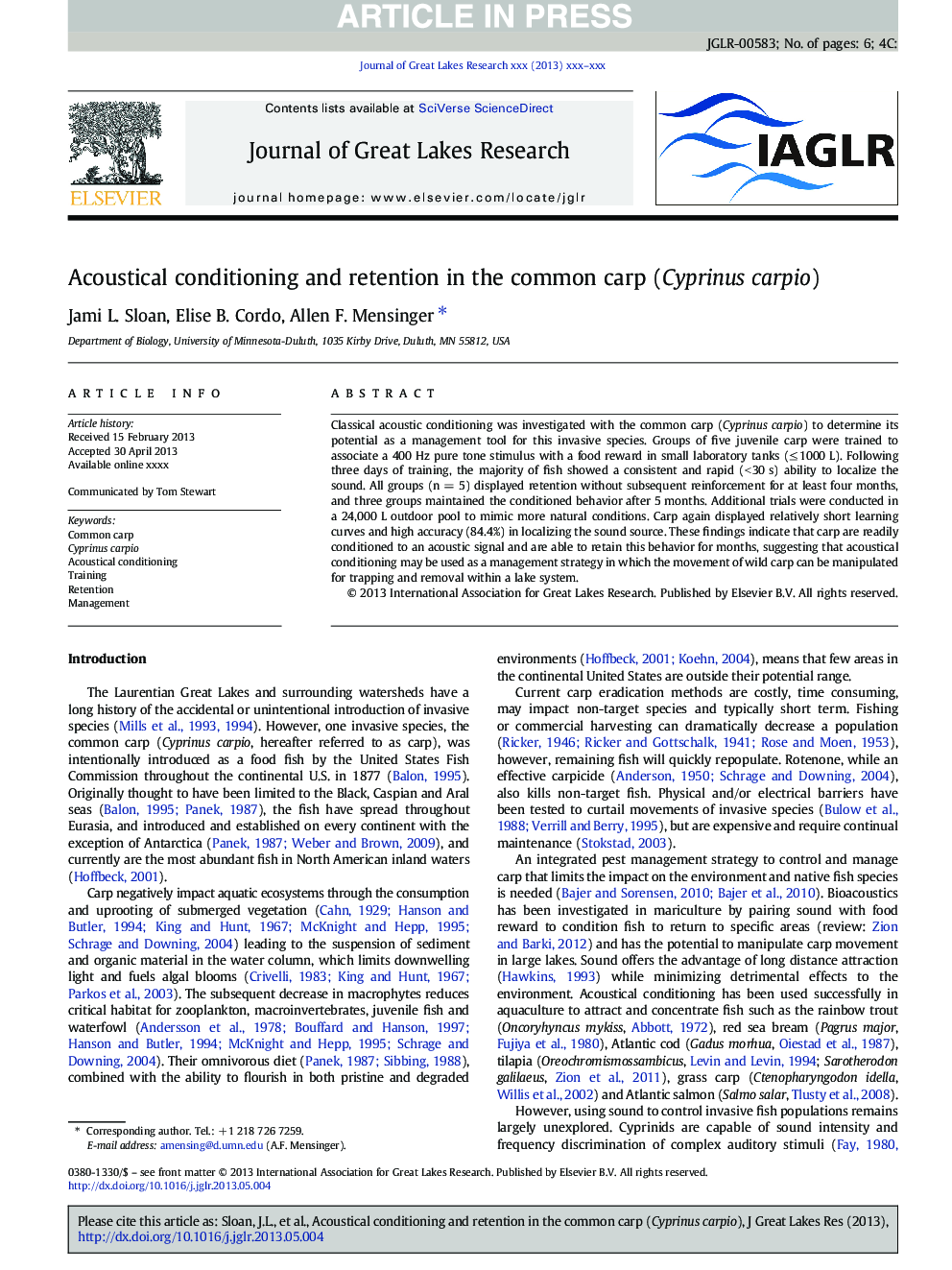| Article ID | Journal | Published Year | Pages | File Type |
|---|---|---|---|---|
| 4398586 | Journal of Great Lakes Research | 2013 | 6 Pages |
Abstract
Classical acoustic conditioning was investigated with the common carp (Cyprinus carpio) to determine its potential as a management tool for this invasive species. Groups of five juvenile carp were trained to associate a 400 Hz pure tone stimulus with a food reward in small laboratory tanks (â¤Â 1000 L). Following three days of training, the majority of fish showed a consistent and rapid (< 30 s) ability to localize the sound. All groups (n = 5) displayed retention without subsequent reinforcement for at least four months, and three groups maintained the conditioned behavior after 5 months. Additional trials were conducted in a 24,000 L outdoor pool to mimic more natural conditions. Carp again displayed relatively short learning curves and high accuracy (84.4%) in localizing the sound source. These findings indicate that carp are readily conditioned to an acoustic signal and are able to retain this behavior for months, suggesting that acoustical conditioning may be used as a management strategy in which the movement of wild carp can be manipulated for trapping and removal within a lake system.
Related Topics
Physical Sciences and Engineering
Earth and Planetary Sciences
Earth and Planetary Sciences (General)
Authors
Jami L. Sloan, Elise B. Cordo, Allen F. Mensinger,
